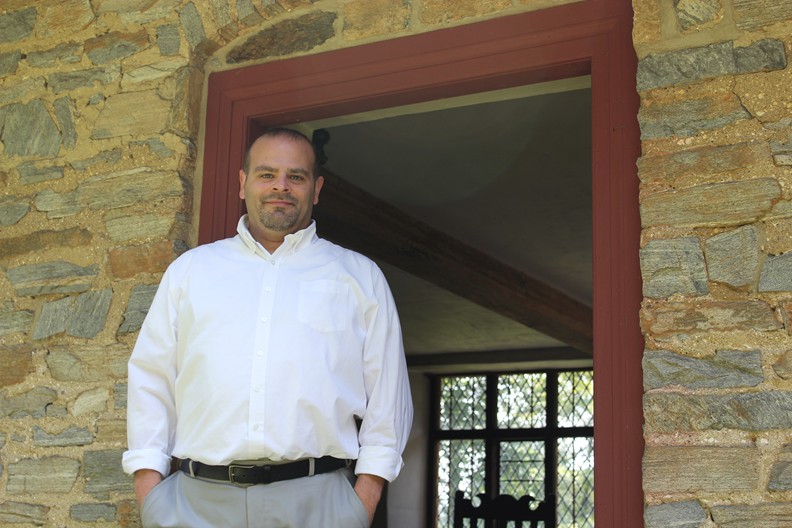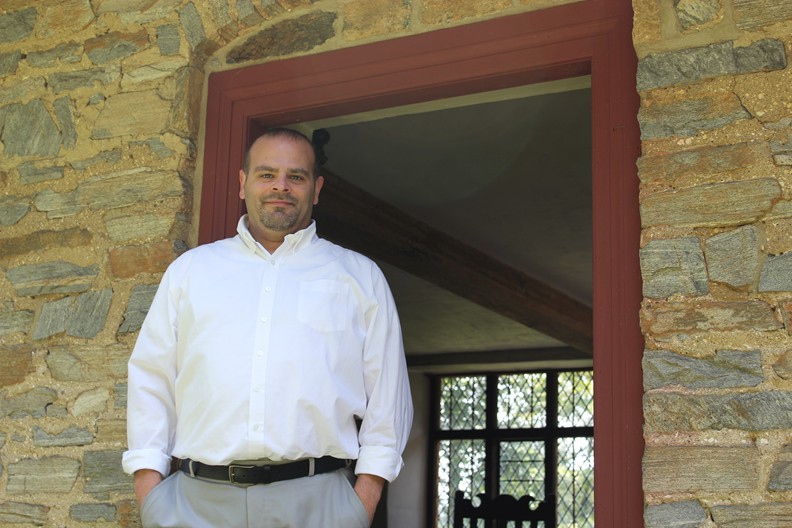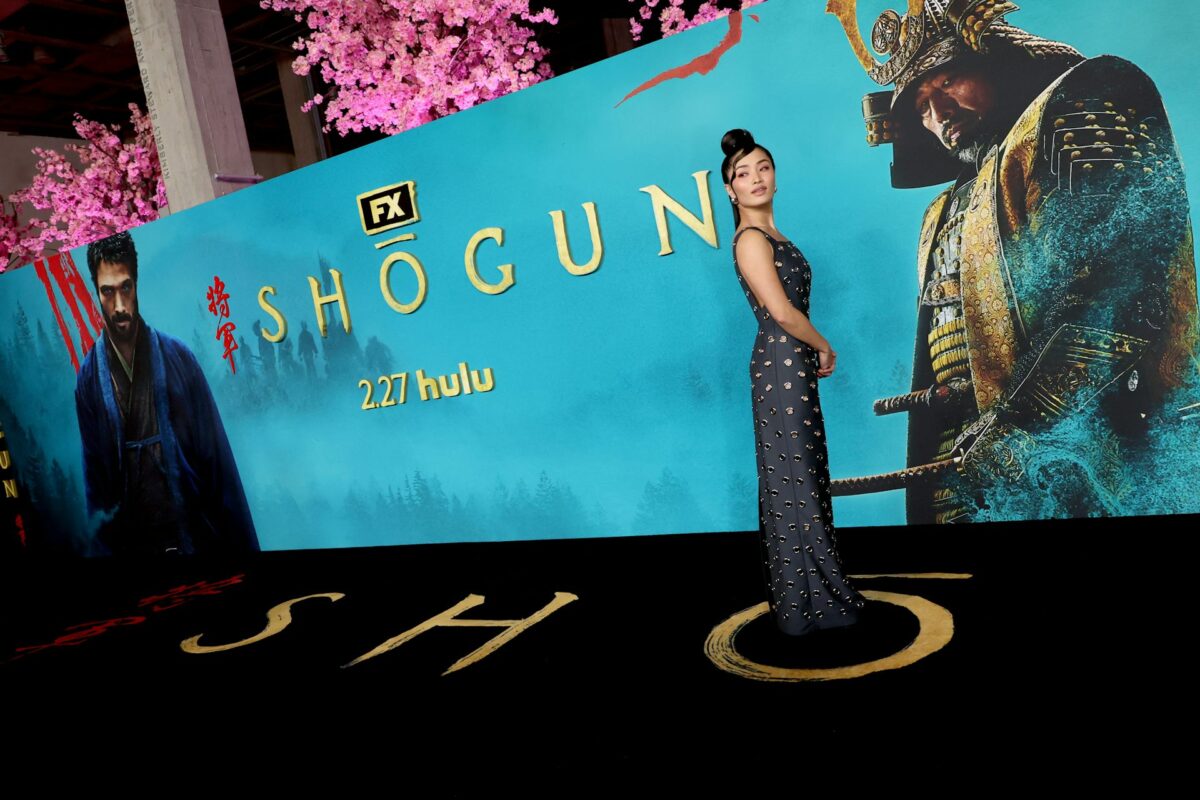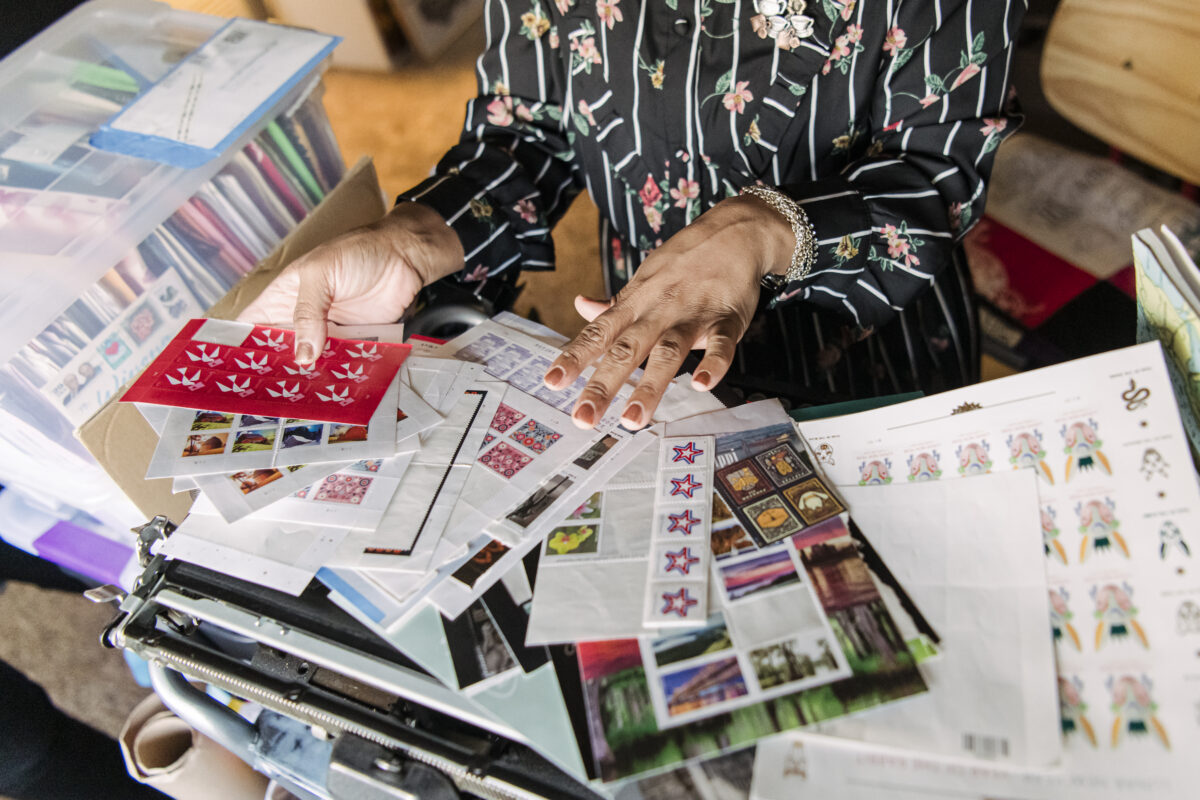Every so often, we’ll chat with an alum about what they do and how they got there. Today we’re talking with Robert Bennett ‘12, Ancient Studies and History, about his work as the executive director of the William Brinton 1704 House and Historic site.
Name: Robert Bennett
Job Title: Executive director of the William Brinton 1704 House and Historic site
Major(s): Ancient Studies and History
Grad year: 2012
Q: What drew you to UMBC for your studies?
I was originally drawn to UMBC’s Ancient Studies department because of its well-rounded curricula, which focused not only on Classical languages, but also ancient history and archaeology. However, UMBC was approximately 70 miles from my home, and, being a non-traditional student, living on campus was not an option for me. Eventually, through the efforts of a professor at my local community college, I was offered a full scholarship by President Hrabowski that made my long daily commute financially feasible. It was an absolutely life-changing moment.
Q: Can you recall any professors or advisors at UMBC who inspired you?
It would be near impossible to list all of the faculty who inspired me, so I’ll mention only a few. President Hrabowski always made time for me, and would speak to me whenever and wherever he saw me. Ancient Studies faculty such as Dr. Marilyn Goldberg and Dr. Jay Freyman were instrumental in advising me as well as helping me through difficult times. In the History department, Dr. James Grubb and Dr. Joseph Tatarewicz encouraged me to get a second BA in History. Dr. Simon Stacey, Dr. Anna Shields, and Dr. Ellen Spitz provided direction and guidance.
Q: Can you explain a little about the research paper you had to write for your history class, and how it opened the doors to your career path?
I was instructed to write a paper concerning some historical event in my family’s history. Unfortunately, I knew next to nothing about my family, and what I did know only went one or two generations deep. My girlfriend (now wife) suggested using my newly acquired historical skills to research my father’s line and, when I did, I found that I was descended from some of the first English settlers of Pennsylvania! I wrote about how this discovery changed my perspective concerning what it meant to have deep roots and the connection to a place. Through my research, I discovered that the descendants of one of the branches of this family owned and operated an historic house museum in West Chester, PA. I visited the house, told the Executive Director about my paper, and she asked to read it. She was retiring soon, so she sent the paper to the board of directors. The board asked to meet me, and, upon the former director’s retirement, offered me the job!
Q: What has been your greatest achievement in your career as Executive Director? Your greatest challenge?
My greatest achievement thus far has been to increase visitation and admissions by 75%. An enlarged social media presence, as well as good word of mouth, have contributed to this increase; but I believe it is really due to the personal connection to the house I possess and am able to convey to my visitors. My greatest challenge has been to keep the museum relevant to succeeding generations whose values are shaped by a changing historical landscape.
Q: What do you enjoy most about your profession?
To put it simply: making history come to life.
Q: Is there any advice you’d like to give to students at UMBC?
When I was offered my scholarship to UMBC, I was asked by family and friends what I would study. After telling them that I would major in Ancient Studies and History, most asked why I would not study something with more earning potential and employability. The answer I gave is the advice I would give: One must do what one loves.
Tags: Dr. Anna Shields, Dr. Ellen Spitz, Dr. James Grubb, Dr. Jay Freyman, Dr. Joseph Tatarewicz, Dr. Marilyn Goldberg, Dr. Simon Stacey, Executive director, History, President Hrabowski, Robert Bennett, William Brinton




